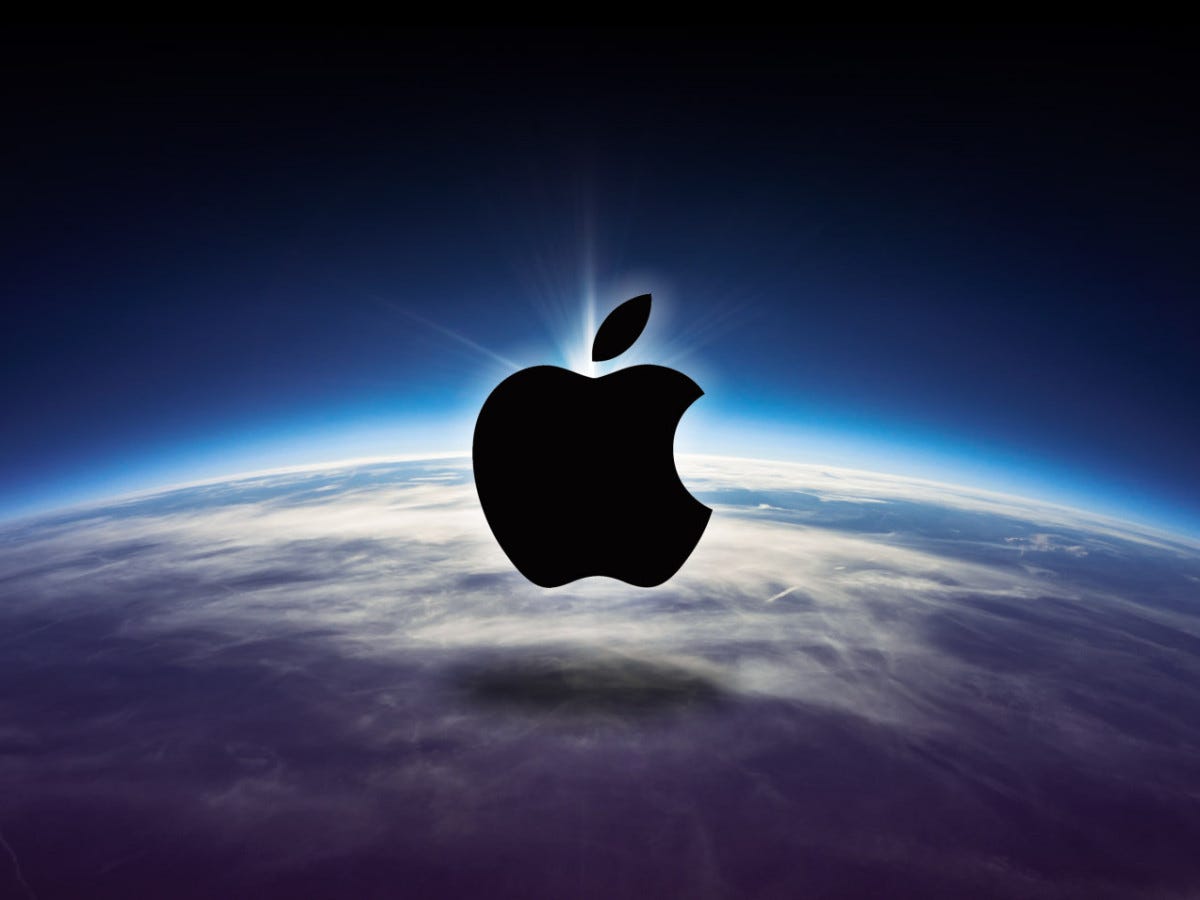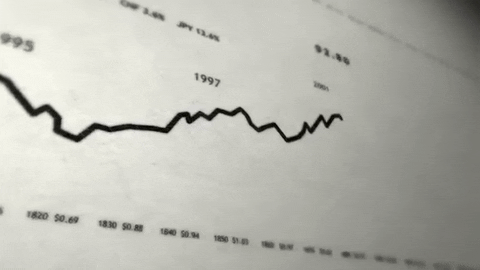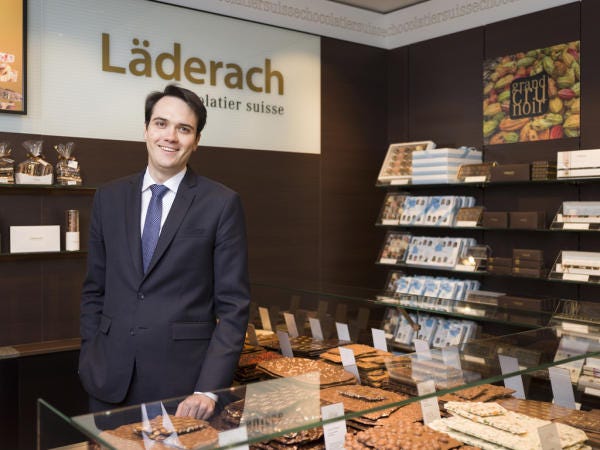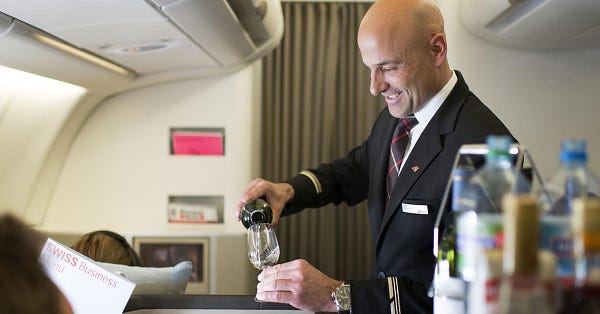Dear Insider,
They say that “size matters”…
We will avoid refering to all the possible applications of this eternal truth - suffice it to say that it is especially true in business.
Case in point:
When Steve Jobs returned to Apple as chief executive in September 1997, the computer maker was valued at $3bn — less than one-tenth the value of German conglomerate Siemens, Europe’s largest industrial group both then and now.Fast forward two and a half decades, and Apple’s market capitalisation exceeds not only Siemens — at $1.42tn the iPhone maker is worth more than the entire Dax index of Germany’s 30 leading companies. (From The Financial Times)
Here is where we can add another overused, yet equally true aphorism:
Technology is eating the world.
What does this mean for Swiss business?

Well, let us consider for a moment the similarities between business in Germany and business in its smaller, Alpine neighbour to the south.
Heavy reliance on exports
Rigid labour laws
Dependance on manufacturing sector
Heirarchial business and organisational structures
It isn’t hard to see that if leading German industrialists are worried about becoming the next Kodak, their Swiss counterparts have equal reason for angst.
Meanwhile, Apple has built a trillion-dollar business that continues to morph and grow and expand in new directions, adding new services and reimagining its model at every turn of the road.
Can any Swiss business (let alone German one) possibly follow that example to a similar valuation?
Not unless they wake up to the data game.
As Tesla takes on the legendary German car industry, with a valuation that already exceeds Volkswagen, it is becoming clear that the defining factor for it, Uber and other major tech giants (yes, Tesla is a tech company…not an auto manufacturer…obviously) is their ability to leverage data to hop nimbly from one opportunity to the other - and monetize on the fly.
Or perhaps it is something deeper.
Much of Germany’s economic might comes from companies founded in the late 19th century - when the entrepreneurial spirit was strong. That golden Gründerzeit is now no more. Instead, it is the American founder’s philosophy that seems to be unstopable.
Swiss businesses may, by virtue of their home market and history, never truly aspire to be the next Apple.
But then again - why not?
That’s the trillion-dollar question.
Ian
The Numbers Game

In which we serve up some of the more interesting numbers in Swiss business…
40%
Despite solid growth across the board, Swatch Group - the largest conglomerate of Swiss watch makers - the company’s stock took a 40% hit over the last two years. Obviously a problem that privately-owned Rolex doesn’t have to deal with.
205 billion CHF
We usually think of Switzerland as an export nation - with good reason. But 2019 saw a significant rise in imports, to the tune of 205 billion CHF - growth of 1,3%. The result may be a market that is less self-centered, with a younger generation more reliant on e-commerce.
265
Phillip Morris, whose Davos Promenade lounge was a hit during this year’s WEF, is taking a hit in its personnel department. A new reorganisation will see 265 jobs go…yes, “up in smoke.” So much for “unsmoking the minds” of those closest at hand…
0,6%
Swiss insurers love life…life insurance, that is. Volumes in the life segment rose by a modest 0,6% with a particularly strong demand for investment-linked life insurance policies. In country, where medical care is strong, life insurance is making many rich - just not the insured.
Want more?
Follow The Swiss Insider on Twitter for bite-size news as it happens - from Inside. #insidersdoitsmarter

The Briefing
In which we digest business news from around Switzerland - bit by bit…
Rich like Roche…or Apple?
Pharma is still king - or at least one of “three kings” - when it comes to the most profitable industries in Switzerland. Vasant Narasimhan’s Roche racked up 8% growith with a profit of 14,1 billion CHF. Not to be outdone, of course, the CEO himself pocketed 10,6 million CHF for himself. With so much extra on hand, it would be easy to compare Roche to another cash-rich conglomerate across the ocean - Apple.
But where the tech giant can use its extra millions to do R&D on a new product or feature that can then be rolled out in a tightly orchestrated (and margin-friendly) manner, Roche’s riches don’t necessarily have the same direct impact on the bottom line. It also isn’t as limber and able to swifly pivot into new business areas like Apple - from wearables to music, to hardware, to telecoms to…who knows what next.
Tim Cook, on the other hand, has made it clear that health is a big new frontier for Apple - along with financial services. True, Apple may not yet have it’s first (medical) tablet factory… (pun intended… ;) ) but it most certainly does have two advantages of its own:
Lots of extra cash
A super strongs supply-chain management system.
And who is to say that the “medication-delivery-by-prescription-and-pill” method will survive very far into this new millennium?
In the meantime, Roche should be fully aware that health and medication are not immune to disruption by Big Tech. And being rich doesn’t always make you (or keep you) right…
(Read about Roche’s riches here.)

(Photo from 20min.ch)
Intolerant chocolate
Chocolate belongs to Switzerland. But even the national sweetness can turn sour when injected with a dose of politics - and, according to some, political correctness. Up until now, passengers of national air carrier SWISS could enjoy truffles from Laederach, a stalwart of the chocolate industry with over 1 000 employees in 14 countries. Now that may change…
Laederach CEO Johannes Laederach and his father, Juerg Laederach - a member of the Board of Directors both are active members of the Christian society, Christianity for Today. The problem? Christianity for Today is known for being hostile to same-sex relationships and abortion. So - by April of this year, Laederach will no longer be available on SWISS flights.
Officially, a SWISS spokesperson indicated that a range of factors, including market conditions, quality among others determine which suppliers are used by the airline. Officially… (Read the story here.)
Insurance is always sure
Residents of Switzerland spend a hefty percentage of their annucal income on insurance. By most accounts, around 10% per household.
So it’s no wonder that the insurance industry makes out like bandits, with industry giants AXA, Baloise, Helsana, Suva and others headlinging an industry that raked in over 10 billion CHF in profits in 2017.
The latest stats point to further growth - both for premiums and profits, although profits in auto insurance remain stagnant. Non-life premiums rose by 1,7% to 28,6 billion CHF. The big winner was individual life insurance - with growth at roughly 2%.
(Read the details on insurance in Switzerland here.)
Share The Swiss Insider
You decide who “comes inside” - for the focused insights from The Swiss Insider.
Top of Twitter
In which Swiss Twitter sends its love…
Swiss quality comes to the internet
Ringer CEO and Founder of digitalswitzerland celebrated the recently announced “Swiss symbol of quality of trust on the internet.” Trust the internet? - It will take more than Swiss quality to accomplish such a feat…


Schade for the schoggi
Swiss’s decision to drop Laederach chocolate also made waves on Twitter - with most on the side of the airline… But not all.




Brexit on the mind
The United Kingdom (and its diplomatic representatives have made great efforts to foster ties to Switzerland in the face of Brexit. Little countries have to stick together, after all…











